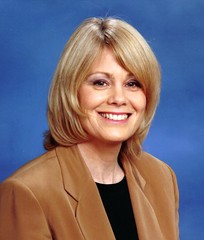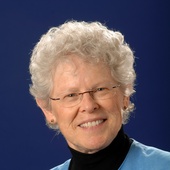Seniors Should Not Lose Their Homes To Tax Sales and Foreclosures If They are 62 And Have Enough Equity
Via Mary Andes, reverse mortgage specialist
The current ecomonic environment has created numerous difficulties for many families. The situation for our older population, however, can be even more severe as increased expenses for medical and prescription needs often create a situation where a choice must be made between eating and talking care of medical needs. The reverse mortgage program provides a valuable solution for those who have sufficient equity in their homes which can be tapped to create additional monthly income to alleviate these problems.
Reverse Mortgages in Maryland I help seniors purchase homes with NO MONTHLY PAYMENTS - new loan signed off by Congress in 09 - part of the stimulus package to help seniors purchase homes they want and stimulate housing industry. 5300 Westview Dr. #302 Frederick, MD 21703 Phone: 757 291-1430 Fax: 240 575-5794 Website: http://activerain.com/blogs/fhareverseforpurchase Email : mandes02@gmail.com
There is an epidemic of senior citizens nationwide losing their homes to tax sales and foreclosures. This is becoming much too frequent and is an assault to our “endangered species” – our senior citizens. According to Government Repo Homes, “About 28% of those boiling in the foreclosure cauldron are aged above 50.” Which means almost a third of all people in foreclosures are over 50 which seems unconscionable.
Every week I visit seniors who are on the verge of losing their homes. One day in a local newspaper, I scanned the tax sale notices and realized many of the tax sales were in my own town and worse, they belonged to seniors. I looked at the amounts owing: $497., $1,058,, $532. I thought to myself, how can anyone loose a house for that small of an amount? As I reviewed the people I met over time, I started listing some of the many reasons for the financial bleeding:
- Seniors who lose a spouse, lose the other spouses income such as their social security.
- Seniors who experience a loved one with cancer, may have to pay close to $30,000 a year out of pocket expenses. $30,000 a year for 7 years is around $210,000.
- Seniors whose spouse needs to be placed in a nursing home and does not qualify for Medicaid or have long term care insurance, sometimes pays between $3,000 to $7,000 per month for care.
- Seniors who are left with mortgage payments, medical bills, and faced with the higher cost of living, have to choose between mortgage payments, taxes, food and utility costs.
I visited a 68 year old widower two months ago who told me, “Mary, this month I cut my food expenses to $100. a month and turned my heat off "– this was in February which was 20 degrees at night. This man had out of pocket medical bills from his wife who had cancer. When his wife died, he lost her income of $1,210 per month social security.
I met a widow last week and we talked for two hours. She asked me if she should go bankrupt or foreclosure? Her husband had died, therefore, she lost her income, captured his, but took a 30% cut in income and now she has cancer.
The intolerable list goes on to what our seniors are experiencing. Many of the seniors I visit, have been through World War II and the great depression and never thought, after saving and building substantial financial portfolios, they would ever be in these dire circumstances.
Most of these people could have been helped with life insurance and long term care insurance. However, many of them could not qualify after they became ill or advanced in years.
In 1961, the very first reverse mortgage was given to a lady who lost her husband. The incubation of the reverse was to help seniors from losing their homes and to alleviate their financial burdens so they could stay in their homes. However, the loan went through growing pains and needed tighter guidelines to protect seniors. National Council of Aging and AARP along with others, appealed to Congress to change the guidelines and have the loan insured. FHA decided to insure the loan and created a new benchmark to protect seniors. In 1988, President Reagan signed off on this life- changing loan and Congress named it The Home Equity Conversion Mortgage.
The motive for this loan is to keep the seniors in their homes. Income and credit are not important. What is required is that the youngest borrower must be 62 years old, the dwelling must be HUD approved and the home have sufficient.
Many of the reverse mortgages have been used to save homes from foreclosures. If there is enough equity in the home after paying off the liens and fees, the borrower may receive either: a lump sum, monthly payment, line of credit, or combination of line of credit and monthly payment. With the FHA Reverse Mortgage, the senior has title to the home and cannot be forced to move even if he used the equity and the house value goes backwards.
The revised FHA Reverse Mortgage loan has become a parachute and life preserver for those seniors who are trying to survive the unforeseen catastrophes that dislodge their lives and the topsy-turvy economy that becomes their tidal wave.
For more information about reverse mortgages, read the National Council of Aging booklet “Use Your Home to Stay in Your Home”: http://www.ncoa.org/news-ncoa-publications/publications/ncoa_reverse_mortgage_booklet_073109.pdf
Mary Andes
Wells Fargo Reverse Mortgage Specialist
Wells Fargo Home Mortgage Address: 5300 Westview Dr., #302, Frederick, MD, 21703
Phone: (757) 291-1430


Comments(2)